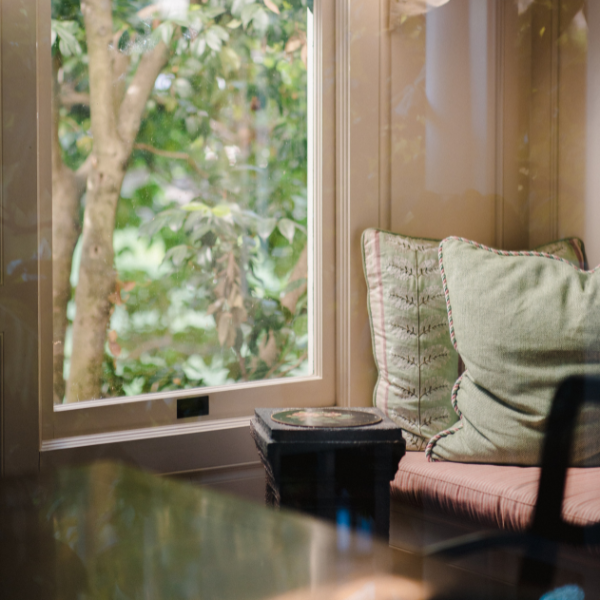Published on November 1st, 2023
The benefits of making a warm, healthy home
Your home health has an impact on your own health. Here we look at how the changes you make to your home can benefit you and your family's wellbeing for the better.

The benefits of a healthy home don’t just mean lower bills and CO2 emissions (although these are invaluable in themselves) it also means you have less on your own plate to worry about, the family’s more comfortable and you have more time to focus on the things that matter.
That’s why we started Furbnow in the first place, to assess what your home needs to be healthier and to provide the accredited contractors to carry out the work.
The key to making the right energy efficiency changes to improve your home’s health is understanding the value those changes bring, not just to your wallet but to your own family’s well being. Here we look at how different home renovations provide long-term and far reaching benefits to you and yours.
Contents:
- Free up money each month with double glazing
- More comfort in your home with insulation
- Less environmental stress with heat pumps
- Less maintenance work with new expertly delivered renovations
- Conclusion
Read our guide on everything you need to know about insulation
1. Free up money each month with double glazing
We should first say that home renovations come with upfront costs which you could see as money you’re investing for the future. There are also increasing finance options to help with the burden of these costs which you can read more about in our financing 101 blog post. Here you can see a list of government schemes and private options too.
The upshot of making these investments is that they do steadily pay their way and it means on a monthly basis, you’ll have a bit more cash in your pocket for other things.
To give you an example: double glazing
Double glazing costs can vary pretty significantly. The white PVC ones you see tend to be cheaper with the hardwood frames at the upper end.
The Energy Saving Trust calculates that A-rated windows for a semi-detached house will usually cost around £7,500 with a pay-back of up to £250 and about 405 kg of CO2 saved each year.
This might seem like a slow payback but it also helps improve the value of your home with an improved EPC rating.
The benefits of double glazing that go beyond the financial include:
- A more comfortable home with reduced heat loss
- Peace and quiet with reduced external noise
- Reduced condensation and dampness
Read: what could a whole house retrofit do for your home?
2. More comfort in your home with insulation
Living comfortably often refers to financial security but it can also literally refer to how comfortable you feel in your own home. One of the main factors that decides comfort is warmth.
Adding wall insulation will usually:
- Cut down draughts through the walls and round windows
- Block vapour movement, reducing the spread of damp
Increased warmth is better for your health as well as your monthly bills. According to Citizens Advice the benefits to creating a warm, healthy home include:
- Reduced incidence of respiratory disease
- Reduced asthma attacks
- Reduced absence from work
- More usable space around the house
- Improved social relationships and mental health
- Reduced contact with health services and emergency services
It’s fair to say that your home’s health has a direct connection with your own health, and like your own health it’s something that needs to be managed carefully. It’s not just the direct impact of your home on your well being either but the stress caused by bills that better insulation can mitigate.
3. Less environmental stress with heat pumps
Climate anxiety and a feeling of helplessness is commonplace in today’s world, but knowing that you're doing what you can can help.
Heat pumps take natural energy from the ground or air and produce no emissions in generating energy. They also use about 25% less energy than traditional electric heating methods because the amount of heat they produce is more than the electricity they consume, so it’s a big step towards a small carbon footprint.
Heat pumps work like a fridge in that they use electricity to evaporate and condense a refrigerant, which then absorbs heat from either the ground or atmosphere before releasing the heat into the home.
Read: Heat pumps to insulation 5 ways I can reduce my energy bills for good
In terms of cost heat pumps range from £7,000 to £20,000 to install depending on the type you get. But there is the Boiler Upgrade Scheme (BUS) that helps with the upfront costs of getting a heat pump:
- £5,000 off the cost of installing an air source heat pump
- £5,000 off the cost of installing a biomass boiler
- £6,000 off the cost of installing a ground source heat pump
Alternatively low cost improvements can include installing solar PV, using energy efficient light bulbs or buying a smart thermostat that controls the heat in your home economically.
Just remember not to be too hard on yourself about slipping up on being green. Climate action is a huge systemic task and one that Furbnow is campaigning for better engagement with from the public and private sectors.
4. Less maintenance work with new expertly delivered renovations
Managing your home’s health is stressful in itself, so it can be worth doing the big jobs together to reduce repetitive small jobs in the long run. Making home eco upgrades can mean your future facing home is more efficient and is generally less likely to go wrong.
A prime example of this is upgrading your boiler to a more fuel efficient model
Modern boilers are more efficient than older boilers for a number of reasons including:
- They tend to be condensing boilers meaning they recover the heat that would normally be lost by older boilers
- They should come with a warranty that means any failings will be covered by the manufacturer rather than yourself
- They should have a magnetic filter fitted by the plumber which removes dust from heating water.
- They come with chemical inhibitors that decrease the corrosion rate and prevent the build up of sludge, keeping the system efficient for longer.
More broadly, having a professional deliver the efficient eco-home upgrades you need can take a lot off your plate. That’s why Furbnow offers end-to-end project management of your home upgrades, from an assessment to show what your home needs through to delivering and managing your upgrades thereafter.
If you’d like to book an assessment to see where improvements can be made then check out our booking form.
5. Conclusion
There’s a physical connection between your home health and your own health.
Home upgrades help benefit both of these for a number of reasons:
- The first of which is that it frees up money in your pocket each month once you’ve made the investment in your property, this money can then be used on other important parts of your life.
- An increase in comfort in your home from having better insulation is better for your physical wellbeing with less respiratory illness and joint aches, more usable space in your home and improved mental wellbeing too.
- If you can worry less about your environmental impact from making improvements around your home, like installing heat pumps and solar, then you maintain better mental health too.
- And generally having to perform less jobs around the house in the long-run can really help reduce stress and anxiety.
These upgrades can seem daunting, but we ensure they don’t need to be as we can guide you through from assessing what your home needs to providing the accredited installers and contractors to carry out the work.
Book a home assessment and start your journey to a healthier home with Furbnow.
Written by

Oisin Teevan